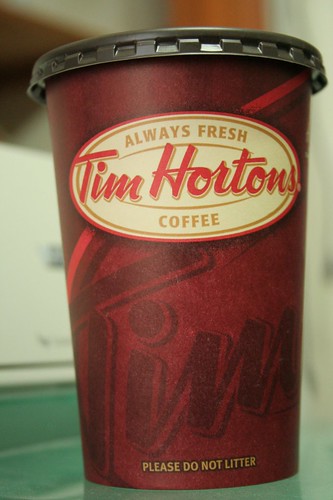According to a recent Dow Jones newswire, Marshall & Ilsley Corp., (MI) the American bank that was recently bought by Canada's Bank of Montreal, (BMO, BMO.T) has now had its 10th straight quarterly loss. The bank, however, based in Wisconsin, has been improving in recent months as the amount of money that it must put aside for defaulting loans has been declining. Nonetheless, the bank is struggling desperately to make a profit and it still owes the U.S. government 1.72 trillion dollars in bailout money. BMO has agreed to cover the loan once their deal to buy the troubled bank closes.
In the last three months, Marshall & Ilsley lost 116.6 million dollars. Which is why the fact that BMO paid 4.1 billion dollars for the bank is so disturbing for many shareholders, like myself. Net charge-offs, loans lenders don't think are collectible, rose to 4.8% of average loans from 3.9% a year earlier, and Non-performing loans, those near default, fell to 4.5% from 4.6%.
Merging their U.S. Harris banking unit with under performing Marshall & Ilsley may not bode well for investors. But economies of scale are very important in the U.S. banking industry and BMO hopes that more branches and more assets down south will help them finally generate a reasonable return on their American investments... which as of yet, account for less than 10 percent of the bank's income... well behind the Canadian leader in the U.S., TD Bank.
Saturday, April 30, 2011
Wednesday, April 27, 2011
The Intelligent Investor Top 10: Growth and Income.
The Intelligent Investor Top 10:
As a new addition to the Intelligent Investor Blog, I am adding a top ten stock holdings list. Updates and news on the top ten companies to own for the longer-term will be regularly and continually updated. As a measure of personal conviction, and for full-disclosure, I will personally have a position in each and every company on the list.
The list will be for growth and income oriented investors who wish to generate above-average total returns through both capital appreciation and rising dividends. Questions and comments on the businesses, or the list as a whole, are both invited and appreciated as it forces investors, including myself, to defend and reinforce their ownership. As an intelligent investor, if you cannot present a rational and prudent reason for owning a business, SELL IT!
Some positions in the list are for there for defensive reasons, while others are for growth. It is always important to possess a little bit of both. No matter how right we think we are, it is important to remember that even the Intelligent Investors can never be right 100 percent of the time.
THE INTELLIGENT INVESTOR PORTFOLIO:
- I SHARES SHORT-TERM BOND ETF XSB
- RIOCAN REAL ESTATE REI.UN
- I SHARES S&P 500 ETF - CDN CURRENCY XSP
- SUNCOR ENERGY SU
- SHOPPERS DRUG MART SC
- BANK OF MONTREAL BMO
- GENERAL ELECTRIC GE
- IMPERIAL OIL IMO
- TMX GROUP X
- JOHNSON AND JOHNSON JNJ
Other personal positions will be added to the list when, and if, they replace one of the Top 10 holdings.
Happy Investing : )
Monday, April 11, 2011
BMO Sneaking into the Annuity Business: Guaranteed Payments for Life.
Competitors in the banking and insurance industries are crying foul as the Bank of Montreal is releasing a new product promising mutual fund customers over the age of 55 the opportunity to deposit a lump-sum and receive 6 percent annual payments for life after 10 years.
The Globe and Mail described the product today as follows:
"In the case of a BMO (TSE: BMO) product, a customer makes a deposit that is invested in the bank’s line of mutual funds and after 10 years receives guaranteed cash payments equal to 6 per cent a year, paid monthly. Those payments continue for 15 years. After that, the customer continues to receive 6-per-cent interest income (based on the original deposit) on an annual basis for the rest of her life or as long as they hold the product."
Of course, the product sounds quite simple, reasonable, and popular... so what is the problem? While, in Canada, banks are prohibited from selling insurance products in their branches, and BMO's competitors are declaring that this product is basically an annuity sold under the guise of a savings product. On the surface, I would have to agree with them. An annuity is essentially a regular income until death or for a fixed period of time purchased from a life insurance company for a lump sum. And that is eactly what the BMO is providing.
Other banks sell insurance products, but they have to do this outside the confines of their branches. Most have skirted around this requirement by simply building insurance businesses attached to their branches, but BMO has not done this yet. If their competitors get their way, perhaps they will have to. Either way, however, for the intelligent investor, BMO's new product sounds like an interesting and fairly sound choice.
The Globe and Mail described the product today as follows:
"In the case of a BMO (TSE: BMO) product, a customer makes a deposit that is invested in the bank’s line of mutual funds and after 10 years receives guaranteed cash payments equal to 6 per cent a year, paid monthly. Those payments continue for 15 years. After that, the customer continues to receive 6-per-cent interest income (based on the original deposit) on an annual basis for the rest of her life or as long as they hold the product."
Of course, the product sounds quite simple, reasonable, and popular... so what is the problem? While, in Canada, banks are prohibited from selling insurance products in their branches, and BMO's competitors are declaring that this product is basically an annuity sold under the guise of a savings product. On the surface, I would have to agree with them. An annuity is essentially a regular income until death or for a fixed period of time purchased from a life insurance company for a lump sum. And that is eactly what the BMO is providing.
Other banks sell insurance products, but they have to do this outside the confines of their branches. Most have skirted around this requirement by simply building insurance businesses attached to their branches, but BMO has not done this yet. If their competitors get their way, perhaps they will have to. Either way, however, for the intelligent investor, BMO's new product sounds like an interesting and fairly sound choice.
Tuesday, April 5, 2011
Tim Horton's Raising Prices: Others Might Follow.
 In an attempt to curb the effects of price inflation on its key inputs, Tim Horton's (TSE:THI) is increasing the prices that consumers will pay for its basic products. The company has begun displaying signs at most of its stores declaring that the price increases will be effective April 11th.
In an attempt to curb the effects of price inflation on its key inputs, Tim Horton's (TSE:THI) is increasing the prices that consumers will pay for its basic products. The company has begun displaying signs at most of its stores declaring that the price increases will be effective April 11th.Interestingly, the company has yet to state how large the price increases will be, but they have assured their customers that they will be reasonable, and that their products will still represent a good value for customers. To be sure, considering most chains charge more for their cups of java, the company does have some room to increase prices. In addition, like any good business with a valuable brand name, Tim Horton's will surely be able to increase prices while not significantly altering the loyalty of their customer base.
The primary reason for the price increase has been the spike in arabica coffee, the main bean that Tim Horton's uses to brew its iconic cup. To be sure, it is up more than 80 percent since June of 2010! And even Starbucks (NASDAQ:SBUX), already known for selling an expensive cup, has stated that it has not ruled out raising prices to recoup the increase in coffee bean prices.
For Tim Horton's, it is not at risk of losing significant market share from this move, so it is a wise choice for their intelligent investors. Starbucks, on the other hand, has said that it will not raise prices at the moment in fear of losing customers... Tim Horton's shareholders should be proud of their entrenched brand value that allows such prices increases.
For more information, check:
Subscribe to:
Comments (Atom)


